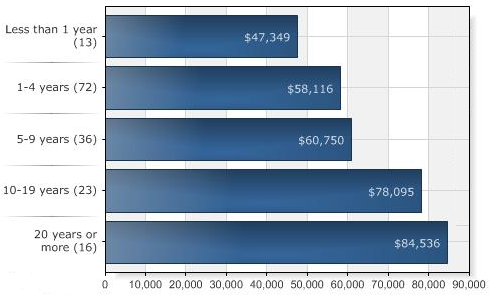Introduction
To begin with, it should be stated that the forensic psychology is the junction of psychology and justice system, consequently, all the conclusions on the matters of the policies and principles for the City of Boston will be based on the understanding of criminal law within the principles of relevant jurisdictions. From this point of view, it should be stated that the important feature of the whole sphere of forensic psychology practice is the ability to testify in court, reformulating psychological findings into the legal language of the courtroom, providing information to legal personnel in a way that can be understood (Bartol & Bartol, 2005). Originally, this feature should be widely used in Boston, as there is strong necessity to decrease the instances of crimes and homicides.
Discussion
First of all, it is necessary to mention that for the successful implementation of the innovative principles, linked with the issues of forensic psychology, and decreasing the levels of criminal behavior, it is necessary to realize the judicial system and the motifs of criminals. As for the judicial system, it should be stated that originally, zero-tolerance is accepted to any types of homicides, shootings, robberies etc. Nevertheless, there are lots of ways, allowing a criminal to avoid the severest punishment, and then get back to criminal behavior.
As for the motifs, statistical data should be regarded first. The daily average amount of crimes is the following:
- Homicides: 1
- Non-fatal Shootings: 4
- Street Robberies: 1
- Commercial Robberies: 1
- Bank: 0,5
- Other: 1
- Vehicle Thefts: 5
- Vehicle Recoveries: 5
- Breaks: 16
- Residential Break-ins: 6
- Commercial Break-ins: 3 (Barak, 2009)
The motifs of the criminals are generally different, still, their aim is the only – the wish of an easy gain. The only way of discouraging such criminals from committing crimes is adjusting the punishment, which is potentially severer than the damage, caused by the crime. Moreover, the legislation and court systems should be really effective, for the criminals knew, they will not stay unpunished. From this point of view, it is necessary to mention that Blackburn (2006) stated the following fact in his research: “Lack of a firm grasp of the judicial procedures will result in the forensic psychologist losing credibility in the courtroom. Nevertheless, for better effectiveness, it can be trained in clinical, social, organizational or any other branch of psychology. In the United States, the salient issue is the designation by the court as an expert witness by training, experience or both by the judge.”
As for the principles of forensic psychology implementation, it should be stated that the questions, which are generally risen by forensic psychology do not touch upon the matters of psychology itself but deal with the legal issues and the response must be presented in the form, applicable for testifying. In the light of this fact, it should be emphasized that the language and the form of the psychological conclusion should be suitable for the formalities of the court on the one hand, and clear enough for creating the principles of legislation, based on the conclusions of psychological examination.
As for the matters of effectiveness, it should be stated, that the depth of the research and the severity of punishment are closely linked to each other. The following graph represents this dependence: thus, the heavier the crime – the severer punishment the offender is sentenced to – the more efforts are spent for his / her psychological research and examination.

Based on this graph, it should be stated that the expenses should be increased, especially for those, who are sentenced to less than a year imprisonment. The fact is that these are the criminals, who do not have enough time to change their behavior, and up to 90% of these criminals get back to committing crimes after being released.
As for the issues of the psychological views and the cooperation of psychology and criminal justice Adler (2004) emphasizes the following: “The forensic psychologist views the client or defendant from a different point of view than does a traditional clinical psychologist. Seeing the situation from the client’s point of view or “empathizing” is not the forensic psychologist’s task. Traditional psychological tests and interview procedures are not sufficient when applied to the forensic situation. In forensic evaluations, it is important to assess the consistency of factual information across multiple sources. Forensic evaluators must be able to provide the source on which any information is based.” Nevertheless, the evaluations in Boston courts are often provided in the inapplicable form, and brief analysis is often required, while, the more detailed the analysis is, the more effective decision is provided.
Conclusion
Finally, it should be stated that the forensic psychology principles in Boston are not regarded as effective, and require slight improvement in the sphere of financial support, cooperation of legislation and psychology and providing the experimental conclusion to the court.
References
Adler, J. R. (Ed.). (2004). Forensic Psychology: Concepts, debates and practice. Cullompton: Willan.
Bartol, C. R., & Bartol, A. M. (2005). History of Forensic Psychology. In A. K. Hess & I. B.
Barak, G. (2009). Between the Waves: Themes of Crime and Justice. Social Justice, 21(3), 133.
Blackburn, R. (2006). What is forensic psychology? Legal and Criminological Psychology. 1996; Vol 1(Part 1) 3-16.